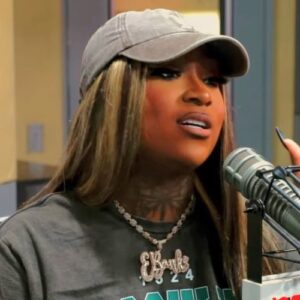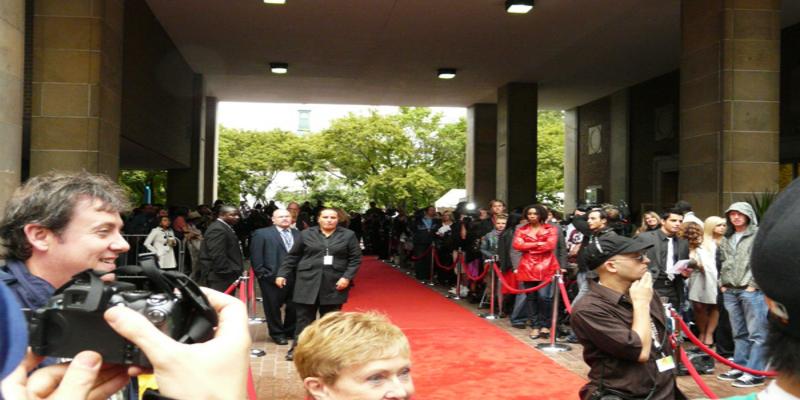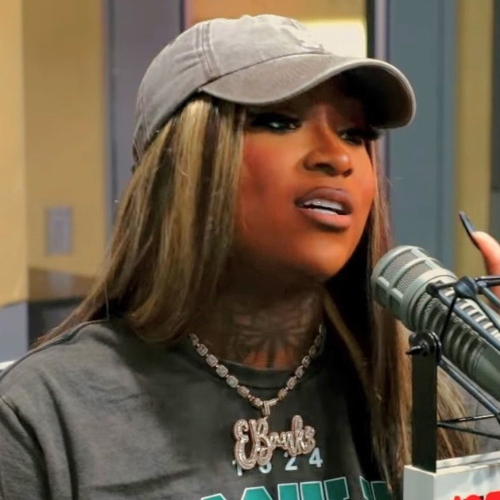If you tried to script a social media parable for 2024, you’d have a hard time topping Hailey Welch’s reality. One moment, she was clocking in at a bedspring factory in the middle of Tennessee; the next, her face shot across the internet as “Hawk Tuah Girl,” a nickname totally born from a single, surprisingly weird, street interview that somehow went nuclear. Her story’s been messy, a little wild, but that’s kind of the point—it’s real, and it’s got all the unpredictability that comes with viral fame today, including headline dust-ups and memes that refuse to die.
Here’s the funny part: Hailey’s just 21, and most of her old neighbors probably still picture her as that kid from around the corner—at least, they did until TikTok had other ideas. It was never just about one viral soundbite, though. Welch’s life has somehow morphed into a constant side hustle: podcasts, T-shirt drops, and, yes, her own crypto experiment (because of course). Altogether, she’s built a multi-million dollar machine—off the back of an unscripted moment, no less. People can’t stop dissecting it. Is it authenticity that draws fans? Is it the randomness of it all? Whatever the reason, Welch’s sudden rise keeps stoking fresh debates about why some internet moments stick and who actually benefits.
But the thing that gets people? Hailey’s never seemed to waver. She rolled into this chaos exactly who she was—working-class, unfiltered, a little bit hilarious. While her name bounces around late-night punchlines and group texts alike, Welch still looks and sounds like the person who first stepped out of anonymity and straight into everybody’s feed. If you’re looking for a 2024 lesson on the power of being “just yourself” (whatever that means now), it’s hard to miss what’s happened here.
So, How Did “Hawk Tuah Girl” Even Happen?
Let’s rewind to Nashville, early summer 2024, with Tim & Dee TV doing the usual: cameras rolling, street interviews, just hoping to catch something that pops. Then comes Hailey, asked a risqué question—her answer was an absolute curveball. She leaned in, dropped her infamous “hawk tuah!” (if you know, you know), and the internet more or less lost its composure. Forget careful scripting; it was the kind of moment you couldn’t fake if you tried.
What set it off? Honestly, the lack of polish. Hailey’s Southern twang, the wild comic delivery, not a shred of self-consciousness—people couldn’t stop rewatching. The clip ricocheted across TikTok, then Instagram, then basically every major platform you can be viral on. That’s when the copycats started popping up, along with a new wave of memes and remixes, each one weirder or looser than the last.
Just days after her street interview, “hawk tuah” was echoing everywhere, from group chats to podcast punchlines. Hailey went from invisible factory worker to internet legend basically overnight, and all she had to do was show up and say what popped into her head.
Nothing Fancy: Roots, Realness, and Building a Brand
Before the storm, Welch’s roots ran deep in Belfast, Tennessee (not the Irish one, in case you wondered)—think pickup trucks, humble living, that sort of grit. Her story isn’t one of champagne brunches or red carpets either. She punched the same time clock the rest of her town did. This authenticity, maybe even plainness, set her apart from the Instagram set and drew others in by the millions.
Nowadays, she’s in Nashville, not exactly hiding her Southern drawl or the rough edges. She still lives with her grandma—which is the kind of detail fans latch onto because it feels honest. Instead of ducking her less-than-perfect family history, Hailey has been pretty up front about her mom’s struggles and her own bumpy start. That openness isn’t just for show; it’s what’s pulled in people tired of picture-perfect influencer feeds and fake relatability.
In an internet era that’s always trying to package authenticity, sticking with Tennessee while her account numbers soar is its own quiet statement. She’s grounded her brand in the same life she came from—even as she cashes in. It’s an odd blend—hustle meets homegrown.
| Platform | Followers | Primary Content |
|---|---|---|
| 2 million | Lifestyle posts, brand partnerships | |
| TikTok | 1.8 million | Comedy videos, viral moments |
| Podcast | Multiple platforms | “Talk Tuah” interviews and commentary |
Cashing In: Merch, Mayhem, and Crypto Trouble
Once the “hawk tuah” wave started swelling, Hailey didn’t wait around. Her “Talk Tuah” podcast appeared in short order—sure, it was another play for relevance, but it landed her in all kinds of new feeds. Sponsors started lining up, partnerships snowballed, and Welch’s quick-fire business sense was on display.
The shirts—”hawk tuah” everywhere—sold out, fast. It wasn’t just a money grab, either, at least not on its face; the drop had that rough-around-the-edges charm, sort of a wink to everyone who’d been in on the joke from the beginning. Hailey managed to take a single meme and spawn a whole mini-business. You don’t see that every day, and even people who study influencer trends seemed genuinely thrown.
Of course, the crypto detour got tricky in a hurry. Hailey’s $HAWK token entered the scene, promising—well, who knows what, really, but the hype sent its theoretical value sky-high. When things got rocky (as they do in crypto), and “rugpull” accusations started swirling, folks wondered what they’d signed up for. Suddenly, Welch went from viral sweetheart to centerpiece in conversations about dodgy celebrity coins. The missing paperwork and the wild swings only made things messier, fueling questions about what internet fame is actually good for—and how risky it is when ordinary fans start treating internet stars as financial gurus.
Why Hailey’s Story Won’t Let Go
Even in the endless churn of internet trends, some moments just clip the culture in a way others don’t. Hailey’s wild “hawk tuah” interview wasn’t just a viral hiccup; it was a subtle rupture—a bit like tearing the curtain on the whole “manufactured fame” thing. Instead of polished PR statements and careful branding, what broke through was this unfiltered, no-limits split second. In a way, that opened the floodgates for others dreaming about breaking out of everyday lives, with nothing but luck and a phone camera.
The phrase itself—”hawk tuah!”—got absorbed into the internet’s shared language. Sketch comedians, viral podcasters, random teens on TikTok, you name it: suddenly everyone was remixing and riffing. Hailey, for at least a while, didn’t just ride a wave—she created one. The phrase mutated from a joke into a staple, the kind you see printed on mugs, heard in lunchroom whispers, maybe even groaned over by parents who still aren’t quite sure what happened.
That’s not to say it’s been a glossy ride. Instant celebrity brings weird side effects. The pressure climbs, the critics circle, and every mistake gets magnified. Welch hasn’t shied from the fallout, though; every misstep, she’s front-facing it, sharing the lurch and grind of sudden fame even as she tries to manage the chaos. If nothing else, her saga is a lesson: making it big online can change your life and wreck your plans in equal measure.
Still Here, Still Standing: Latest Twists
The months after “hawk tuah” took off have been anything but quiet. New controversies seem to pop up like clockwork, some more absurd than others. At one point, rumors about her working for the White House sped around social media—no joke—fueled by doctored screenshots and digital wildfires. Internet sleuths eventually debunked the whole circus, but it was a reminder of how fast misinformation can spread when someone’s this visible (and vaguely meme-adjacent).
Through all of it, Welch has shown a kind of stubborn persistence. She doesn’t duck out when things get ugly—she addresses issues up front, keeps posting, and tries to steer the conversation herself. Where other viral stars have faded when backlash came, Hailey’s willingness to own her story, cracks and all, has kept many of her fans close, even when the headlines have been less than flattering.
The crypto mess—well, it still stings. Angry followers have asked for explanations, debate is everywhere, and the internet is full of postmortems about what (and who) went wrong with $HAWK. It’s left Hailey with a real uphill battle to win back trust and steer her brand forward. This is the internet, though—messy, unpredictable, and always happy to move on to the next drama. Her handling of it, for better or worse, is being watched by fans and digital commentators in real time.
What Comes Next?
Welch’s story, chaotic as it is, lays bare how fame works now—a weird mix of grassroots charm, chance timing, and a knack for staying in the conversation no matter how the chips fall. Turning a “did she really say that?” moment into a sprawling career, she’s both a template and a bit of a caution light for anyone hoping to hit it big just by going viral. You can break through in a second, but the costs pile up just as quickly.
Whether she stays in the spotlight depends on keeping the blend that made her a hit in the first place: grit, humor, and a refusal to airbrush over her history. Those roots in Tennessee, the factory floor realness—oddly enough, they’re her best shot at longevity, because they add texture to whatever she does next. Her podcast’s still running, and her socials hum along, but keeping things real is the only reliable anchor she’s got.
All told, Hailey Welch’s run is internet legend for a reason: she’s proof you don’t need Hollywood backing or a trust fund to spark a cultural moment. But the digital spotlight burns hot and fast. By sticking with what brought her here—her voice, her quirks, her raw moments—she may end up rewriting the rules for meme-fueled celebrity. And, honestly, catching her next move might be even more fun than the “hawk tuah” moment itself.










